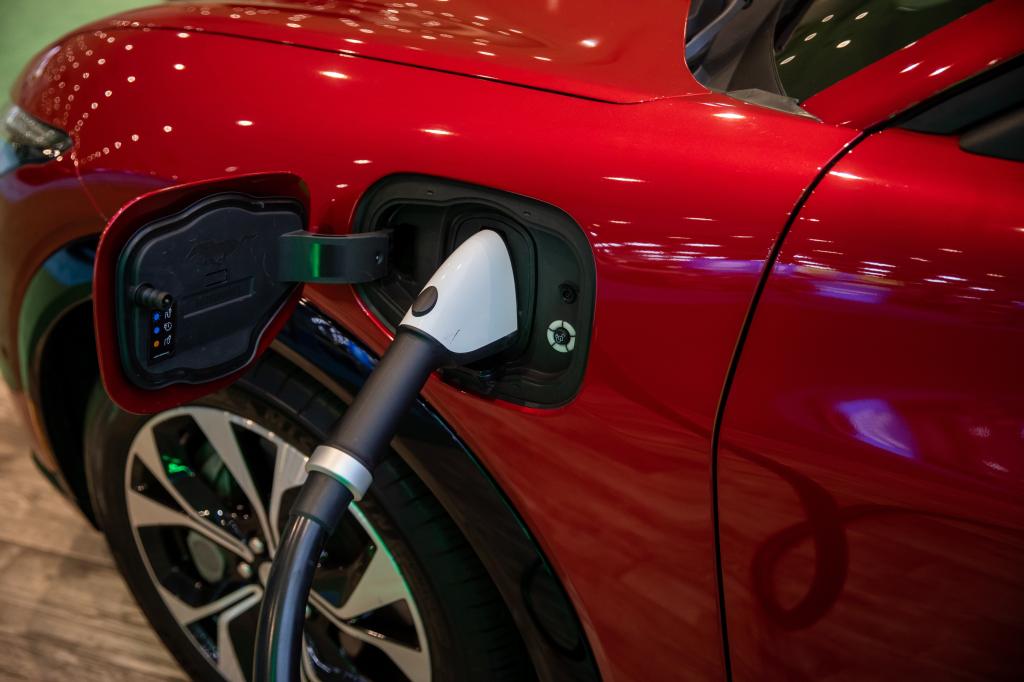Cost remains one of the biggest hurdles to electric vehicle adoption. Most of today’s EVs sell for higher prices than fossil fuel-powered vehicles, and that’s keeping a lot of people from purchasing one.
That might soon change. Coreshell, a battery materials startup, revealed a breakthrough this week that could lower the cost of lithium-ion batteries.
It wouldn’t be the sort of advance that unlocks 500-mile-range EVs, but not many people need that sort of capability. If Coreshell’s approach can prove its worth, it could pave the way to cheaper batteries that aren’t dependent on China.
Forecasts for cheaper EVs are counting on a steady stream of technological improvements, including better battery materials. Silicon has the potential to replace graphite in the anode, the negative terminal of a lithium-ion battery. Both silicon and graphite accept and store lithium ions when a battery is charging. While silicon can hold a lot more, there is a downside.
When charging, anodes tend to swell. Graphite anodes merely get a little bloated, and they’re pretty elastic to boot. But when silicon anodes charge, they can swell like balloons to several times their original size. Without something to compensate for that, the anode can crumble after successive charge and discharge cycles.
Still, silicon’s potential to improve batteries has several startups working to solve its problems. Most approaches involve specialized microscopic structures to accommodate silicon’s propensity to expand. To make their proprietary formulations, these companies use a more refined and costlier version of the metal. As a result, silicon anodes have so far been targeted at markets where the price premium can more easily be absorbed, including consumer electronics and high-end EVs.
Coreshell had previously focused on coatings that slowed degradation of various battery materials, but now the company is dedicated to silicon. “Two years ago, we had a breakthrough on metallurgical-grade silicon,” co-founder and CEO Jonathan Tan told TechCrunch. The coating is elastic, helping to hold the material together through charge and discharge cycles, and it also prevents degradation at the surface, he added. “It is going to be the thing that we’re focused on bringing to market and we’re commercializing starting next year.”
Metallurgical-grade silicon is not only cheaper than higher purity options, it’s also about half the cost of graphite typically used in lithium-ion batteries, Tan said Thursday in a presentation at the International Battery Seminar. Coreshell inked a deal this week with metal producer Ferroglobe to supply the material.
There are geopolitical ramifications, too. Three-quarters of the world’s graphite anode supply chain runs through China, according to Benchmark Mineral Intelligence. That has put battery manufacturers and automakers in a tight spot. To qualify for tax credits on EVs, the Inflation Reduction Act requires a minimum percentage of battery materials to come from domestic sources or from countries with which the U.S. has a free trade agreement; that share is scheduled to increase to 90% in 2028.
Because silicon can store so much more energy, batteries of equivalent capacity require less material compared with graphite. Given that, Coreshell estimates that the United States should have enough metallurgical silicon to meet demand. And because metallurgical silicon also costs less than graphite, it has the potential to supplant Chinese graphite entirely.
Coreshell’s first product will be a silicon anode paired with a lithium-iron-phosphate (LFP) cathode. LFP cathodes are cheaper and safer than other chemistries used in EVs, such as nickel-manganese-cobalt (NMC), and the ingredients are more widely available outside of China. Because of that, automakers have been giving LFP a second look, but they’ve held back from widely deploying it because it stores less energy than NMC.
When matched with a silicon anode, though, the disparity should vanish. Coreshell predicts that its silicon anodes might even give LFP an edge over traditional NMC cells with graphite anodes.
First, Coreshell needs to scale and commercialize its technology, which is not an inconsequential task. Its initial market will be e-mobility, including e-bikes, electric scooters and electric dune buggies. (The company has a deal with the reincarnation of Meyers Manx, which made the iconic 1960s dune buggy of the same name.) For now, the company is making its own material, but it’s not opposed to working more closely with suppliers, perhaps licensing its technology.
In the meantime, Coreshell will be progressing through the rigorous qualification stages required to become an automotive supplier. Tan said his company is planning to supply A-samples to partners in 2025 and hopes to be in an EV by the end of the decade. By 2025, its competitors Sila and Group14 expect to be in commercial production. Granted, their silicon anode materials will cost more, but they’ll have the benefit of scale and experience to help bring costs down.
For automakers, the prospect of choice is appealing. Not all battery advances make it through validation, and if lithium-ion is to continue its march down the cost curve, it’ll need more than one approach to deliver the incremental advancements that the automotive industry is counting on.































Comment